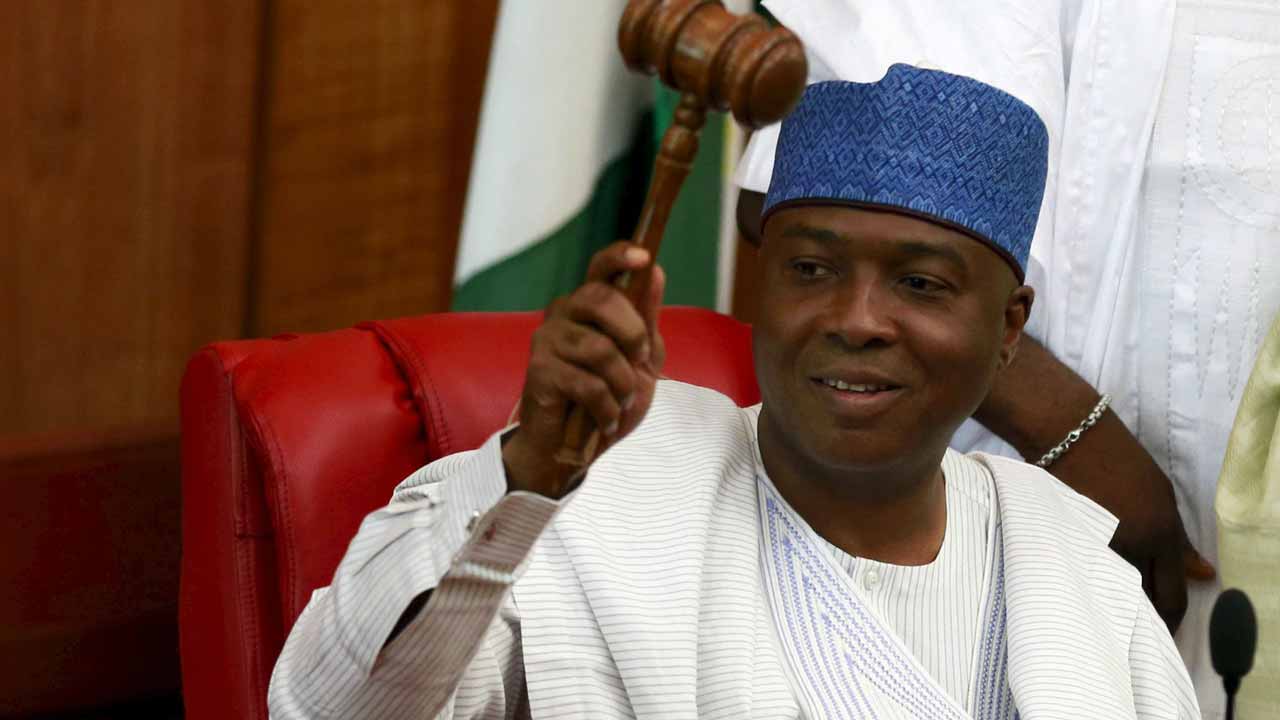- Senate Overrules Ndume, Insists on Magu’s Rejection
The Senate yesterday affirmed its rejection of the nomination of Ibrahim Magu as chairman of the Economic and Financial Crimes Commission (EFCC) based on the damning security reports against him.
By the assertion, the Upper Legislative Chamber nullified the claim by its Majority Leader, Muhammed Ali Ndume at the Presidential Villa on Monday that the Senate had not rejected Magu’s nomination.
After five months of intrigues, wit games and serious political manipulations among the powers that be in the Presidency and the National Assembly, the nomination of Magu was rejected by the Senate last Thursday.
However, Ndume made a strange appearance at the Presidential Villa on Monday and declared that the Senate had not rejected Magu for the EFCC job. This prompted an emergency press conference yesterday by the Senate spokesman, and Chairman of the Committee on Media and Public Affairs, Aliu Sabi Abdullahi, who clearly stated that the position of the Senate was that the nomination of Magu had been rejected and returned to President Muhammadu Buhari.
Abdullahi stated that although Ndume is the Senate Majority Leader, he could not speak for the chamber as the two responsibilities are quite different.
“The call to national duty is crucial. So I am here based on a series of calls and text messages from you about what you thought are conflicting messages. It has become critical for the senate to clarify issues. The eighth Senate believes in its integrity; we uphold and promote the rule of law which is the basic thing about our democracy. We are committed to doing things differently to stabilise the polity in the collective interest of Nigerians.
“I would like to make the following clarifications: I’m holding the votes and proceeding of Thursday. We had two votes and proceeding because we had to go into a joint session to receive Buhari.
Our votes and proceedings are the official records of what transpired in the chamber. I briefed you on Thursday to the effect that the senate was announcing that in view of security reports, we were unable to confirm Magu. We then rejected and returned the nomination to Buhari for further action.
“Media reports emerging, especially from interviews granted by Senator Ndume meant that we have to clarify issues. For the records, I am the official spokesman of the Senate and I intend to discharge this with honour and integrity because the sanctity of the institution is crucial to the sustenance of democracy.
“I have only one point of reference, which is, the votes and proceedings. The Senate deliberated on the nomination of Magu for the position of EFCC chairman with regard to security report available, but referred the other nominees for screening since nothing much was found about them.
“This is the only official position of the Senate. What I say, I say on behalf of the senate. Nigerians should be guided. There is no ambiguity in what we said,” Abdullahi declared.
According to him, “ The Senate is an institution and we are working with the Constitution, and whatever rules we use are drawn from the constitution. We also want the media to be guided in the matter because of some misleading news in the public domain.”
The Senate spokesman said that “even with respect to the indictment of the Secretary to the Government of the Federation (SGF), the genesis was the motion raised by Kaka and Ndume and the Senate decided to take a look at the abuses and the SGF was found to be part of the abuses.”
He said the Senate considered the only security report submitted to it and took its decision, pointing out that the Senate was not aware of any other report.
“Truth is sacrosanct. For every line of command, there is a line of communication. For the records, the leader that I know is Bukola Saraki and the administrative leader is the Clerk to the senate.
“As a routine, when you have a nominee, a security report should be given. The report we are talking about was sent to the Acting Clerk of the Senate.
If you talk about two reports which one is the second one? I heard a report was sent to Ita Enag (the Senior Special Assistant to the President on National Assembly Matters) but I am not holding brief for him. He is a liaison officer and if there is any communication, Saraki or the clerk is in charge.
“It will be unfortunate for anyone to say that the Senate will be subjected to a report sent to the liaison office.


 Billionaire Watch3 weeks ago
Billionaire Watch3 weeks ago
 Startups4 weeks ago
Startups4 weeks ago
 News4 weeks ago
News4 weeks ago
 News4 weeks ago
News4 weeks ago
 Bitcoin4 weeks ago
Bitcoin4 weeks ago
 Naira4 weeks ago
Naira4 weeks ago
 Forex3 weeks ago
Forex3 weeks ago
 Treasury Bills4 weeks ago
Treasury Bills4 weeks ago
























